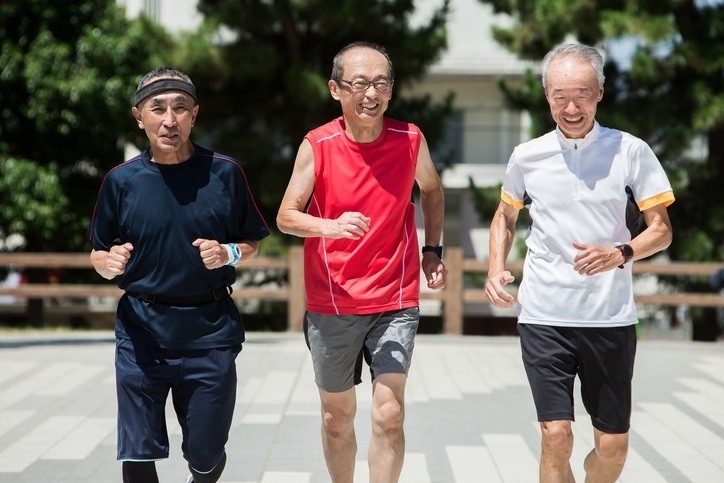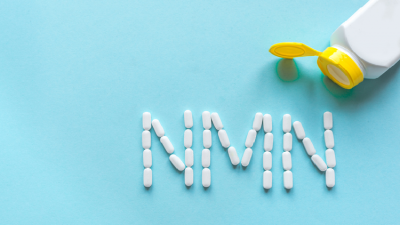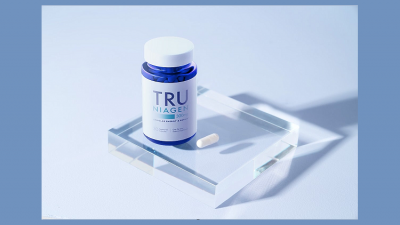Potential for sarcopenia? Mitsubishi-funded trial shows NMN intake improves motor function in older men

This is the third human clinical trial finding that the Japanese company has published in this year.
The latest findings were published in the scientific journal Aging, with the trial conducted by researchers from The University of Tokyo, The University of Tokyo Hospital, University of Toyama, Toranomon Hospital, and Mitsubishi Corporation Life Sciences.
The study was conducted between July and November 2019.
Its two other findings were published in Frontiers in Nutrition and Nutrients, where NMN supplementation was respectively shown to be safe in boosting nicotinamide adenine dinucleotide (NAD+) levels in healthy individuals, and could improve limb function and reduce drowsiness in older adults.
In the latest set of findings, the firm said it once again found that NMN supplementation has significantly boosted NAD+ levels in blood samples and was safe and well-tolerated.
It added that chronic oral NMN supplementation could prevent aging-related muscle dysfunctions in humans, such as sarcopenia.
Supplements that claim to increase NAD+ levels in the blood have come into the spotlight in the recent years.
Proponents said that this was because NAD+ levels have shown to decrease with age, and this was related to age-related diseases.
In the case of NMN, it is present in low concentrations in foods such as edamame, broccoli, and meat.
Study design
In its latest findings, the firm only studied the effects of NMN supplementation in healthy men aged 65 and above.
A total of 42 were recruited and they were randomised to consume 250mg of NMN supplied by Mitsubishi per day or the placebo in the 12-week RCT.
However, data from only 20 subjects were analysed eventually, as 11 subjects each from the intervention and placebo group had received the wrong study material halfway through the study due to an error made by the product supplier.
To examine the effects of NMN on skeletal muscle mass, the skeletal mass index (SMI) and segmental lean mass of lean trunk, arms, and legs of the subjects were measured.
Gait speed and grip strength were also assessed.
Improvements reported
A unique finding from this study was the significant improvements in gait speed and performance in the left grip test in the intervention group, although NMN supplementation did not showed significant improvements in muscle composition.
Using the mixed-model analysis (MMRM), gait speed for the placebo group had reduced from 1.31 ± 0.19 m/s to 1.30 ± 0.22 m/s, while that of the intervention group went up from 1.50 ± 0.20 m/s to 1.60 ± 0.13 m/s by the end of the study.
Gait speed measures the time one takes to walk a specified distance and is used to assess mobility especially in older adults.
“Gait speed and grip strength are included in the diagnostic criteria for sarcopenia (aging-related loss of muscle mass and function), such as AWGS (Asian Working Group for Sarcopenia) or EWGSOP (European Working Group on Sarcopenia in Older People), and are known to be adequately sensitive for the assessment of muscle strength and performance in older adults.
“Therefore, we believe that the chronic oral administration of NMN is a potential therapeutic strategy for sarcopenia,” said the researchers.
Left grip strength, on the other hand, was up by 1.3 ± 2.7 kg in the intervention group and down by −0.7 ± 2.5kg in the placebo group.
This was also a significant finding with a p-value of 0.019.
“This indicated that NMN supplementation has improved the muscle strength and performance in healthy older men, although NMN did not affect the skeletal muscle mass,” the researchers added.
Confirmation
The trial also echoed the results of previous findings, including the safety of chronic NMN supplementation and how it could boost NAD+ levels in the blood.
For instance, no significant difference was observed between the NMN and placebo groups with respect to hematological and blood chemistry parameters, including liver enzymes and renal function markers.
Metabolomic analysis of whole blood samples also showed that NMN supplementation had significantly increased the NAD + and NAD + metabolite concentrations.
“We also observed an increase in NR (nicotinamide riboside), which could indicate the possible conversion of NMN to NR by CD73.
“Collectively, these findings indicate that the chronic oral supplementation of NMN effectively stimulates NAD+ metabolism in healthy older men,” the researchers said.
Source: Aging
Chronic nicotinamide mononucleotide supplementation elevates blood nicotinamide adenine dinucleotide levels and alters muscle function in healthy older men
https://doi.org/10.1038/s41514-022-00084-z
Authors: Igarashi, M., Nakagawa-Nagahama, Y., Miura, M. et al




















